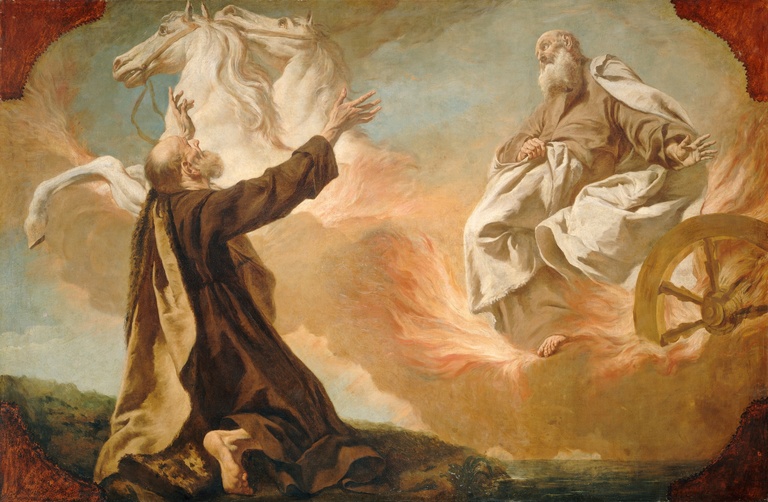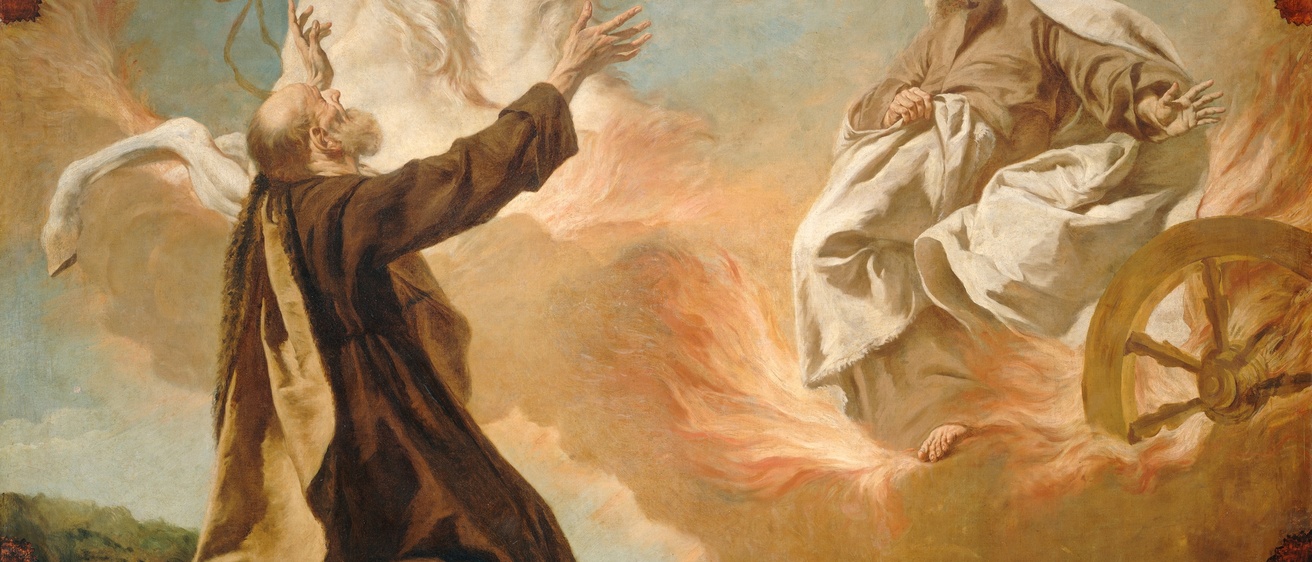
While many know Ben Franklin's famous expression, "In this world, nothing can be said to be certain, except death and taxes," it turns out that the Bible certainly records some individuals as never having died. Many Christians will immediately point to Jesus, but one of the central doctrines of Christianity according to the gospels is that Jesus did, in fact, die before being resurrected from the dead.
However, the Hebrew Bible/Old Testament actually gives us the names of three individuals that are traditionally thought of as never having died.
Readers who have ever noticed an empty place setting at a Passover seder will remember Elijah, who was taken to heaven in a whirlwind after being separated from his disciple Elisha by a chariot of fire pulled by fiery horses (2 Kings 2:11–12). Because the Bible records Elijah as being taken to the heavens while still alive, he became a candidate for one who would one day return to proclaim the coming of the messiah.
A second biblical figure that is said to never have died is Melchizedek, the ethereal priest-king of Salem. In Genesis 14:18, Melchizedek apparently materializes while Abram is speaking to the King of Sodom, blesses Abram, and then following the exchange of a tithe, apparently disappears, while Abram continues his conversation with the King of Sodom in verse 21. This ephemeral encounter caused the author of Hebrews 7:3 to write concerning Melchizedek, "Without father, without mother, without genealogy, having neither beginning of days nor end of life..." contributing to the legend that Melchizedek never died.
The third and final undying individual is much more obscure and not nearly as grandiose, at least not until Jewish apocalyptic literature became popular. Genesis 5 contains a genealogy, which is why most people skip or skim over it when reading Genesis. Every personal entry in the genealogy follows the exact same pattern of (1) introducing their name, (2) how long they lived before their son was born, (3) how long they lived after their son was born, and (4) how many years total they lived before they died. Each genealogical entry ends with the Hebrew word וַיָּמֹת (vayamōt), "and he died," except one: Enoch. Genesis 5:24 ends with, "Enoch walked with God; then he was no more, because God took him" (וְאֵינֶנּוּ כִּי-לָקַח אֹתוֹ אֱלֹהִים). The deviation from the template coupled with the fact that the text never specifically says the words "and he died"—despite the fact that "being no more" because "God took him" is likely a euphemism for death—allowed for the possible interpretation that Enoch never died, but was rewarded for his righteousness (literally "walking with God") by being taken directly up into the heavens while still alive.
It is probably because of Enoch’s later strong association with apocalyptic ideology and literature that he ultimately falls out of favor within Rabbinic literature. However, he remained influential among early Christian traditions, being referenced in 2 Peter 2:4 and Jude 6 in the New Testament, while the Ethiopic Church even included the Book of Enoch in its biblical canon.
(Originally Published Jan 2, 2022)
